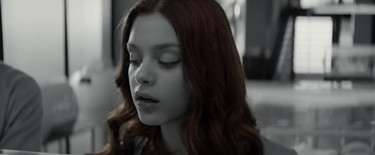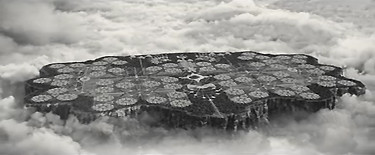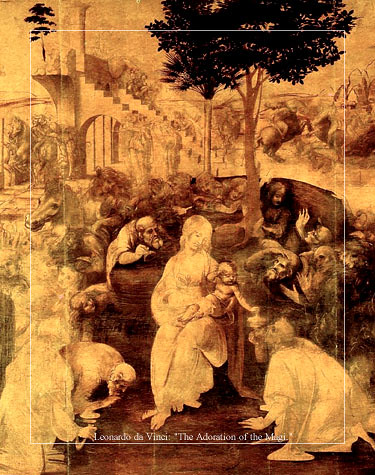
Volume XIV, Issue I
Josiah
By Bob Kirchman
Copyright © 2018, The Kirchman Studio, all rights reserved
Chapter 1: A Mystery Appears
You wanted to see me right away?” Abiyah Ben-Gurion said as he walked into the Zimmerman offices in Wales, Alaska. Elizabeth O’Malley’s assistant Hannah replied, “Yes, I did! I just received this communication from our office on Space Station/Assembly Center 005. It seems they’ve observed something you need to look at on Mars.”
She continued: “As you know, we’ve done periodic flyovers of the abandoned colony ruins… sort of a chance to observe decay in the Martian environment… and, Oh, I am so sorry. I recall how painful that was for you, but please indulge me. There is a mystery here we need you to weigh in on. Let me bring up the images.”
Hannah’s deskpad displayed two views of the colony ruins taken from orbit. The first was a photo Abiyah’s wife Sarah had taken several decades ago. The second was freshly processed from an unmanned probe that was orbiting Mars as they spoke.
See those surviving greenhouses in the shadow of that rock mass. That was all that remained of the APOLLONIUS Colony when you returned to Earth after it had been tragically destroyed by the missile. Look at the footprint carefully. Now look at the view from our probe as it flew over yesterday. See the difference?”
Abiyah’s keen eye caught it at once, “The footprint is different!” he exclaimed. “How can that be?”
We’re perplexed as well. It is BIGGER! We wondered if blast sand had covered some greenhouses and now has blown off, but Sarah’s images of the colony before destruction show no greenhouses there!”
Well, I’m stymied,” said Abiyah, “we scanned repeatedly for signs of life and you know how thorough Sarah is!”
The 3D printers we sent up then were pretty primitive by today’s standards. There was not the AI to self-duplicate anything. As I recall, the greenhouses involved a fair amount of human manipulation to construct. They could manufacture the struts and clear panels from local soils heated in the kiln, but that too required a lot of human oversight.”
So, obviously we have someone… or someTHING adding on to the remains of the colony!”
That’s it sir, we have a riddle on our hands.”
Well, Hannah, let’s use Occam's Razor to begin with. Someone has been adding greenhouses to our colony… or what’s left of it. Who would be the simplest to suspect. We have not tracked any ships from other nations going out to Mars. Space Aliens are always invoked in a case like this… but we’ve never actually seen one… EVER! I would have to say that someone survived the blast that destroyed the colony, incredible as that may sound. The reason we didn’t detect them was that they remained in an underground bunker… perhaps aware of the radiation danger outside. They had no communication ability as that was totally destroyed.”
He continued, “It would have had to have been one of the more technically inclined colonists, to be sure -- Someone who could keep the oxygenation going in the greenhouses and run the 3D printers. I daresay there is more than one survivor.”
So, what do we do next?” Hannah mused.
We need to make contact, if we can. Remember they launched the missile to destroy our ship in orbit. It fell back to Mars and exploded on the colony… we thought it exploded destroying everyone. We don’t know if they are so poisoned by the leadership of APOLLONIUS that they believe we are tainted and they are the enlightened ones.”
Hannah looked up at the painting of Rupert Zimmerman, the mind behind the enterprises that now required their oversight and wondered what Mr. Z would have said at this moment, but it had been some time since Rupert passed after taking pneumonia following the ceremonies to commence construction on the St. Lawrence Island Crossing. Rupert had always been somewhat of an enigma to those closest to him in life, and his painted eyes gazed down at Hannah giving nothing away.
(to be continued)

The Island in Sherando Lake. Photo by Bob kirchman.
C. S. Lewis on Free Will
God created things which had free will. That means creatures which can go wrong or right. Some people think they can imagine a creature which was free but had no possibility of going wrong, but I can't. If a thing is free to be good it's also free to be bad. And free will is what has made evil possible. Why, then, did God give them free will? Because free will, though it makes evil possible, is also the only thing that makes possible any love or goodness or joy worth having. A world of automata -of creatures that worked like machines- would hardly be worth creating. The happiness which God designs for His higher creatures is the happiness of being freely, voluntarily united to Him and to each other in an ecstasy of love and delight compared with which the most rapturous love between a man and a woman on this earth is mere milk and water. And for that they've got to be free.
Of course God knew what would happen if they used their freedom the wrong way: apparently, He thought it worth the risk. (...) If God thinks this state of war in the universe a price worth paying for free will -that is, for making a real world in which creatures can do real good or harm and something of real importance can happen, instead of a toy world which only moves when He pulls the strings- then we may take it it is worth paying.” ― C.S. Lewis, The Case for Christianity
The 2014 movie adaptation of Lois Lowery’s The Giver[1.] is a very instructive portrayal of what Lewis is saying. If you are not familiar with this novel, it is the story of a future world where security and freedom from want is secured by an enforced sameness. Gone are the joys of color and music. People see in black and white. Art is decorative but uninspired. Climate is regulated and people live in a community reminiscent of the ideal New Deal City, Greenbelt, Maryland.[2.] Greenbelt was Eleanor Roosevelt’s experiment in creating a ‘garden city’ to replace the hodgepodge of sometimes chaotic architecture of the time. Americans living in the Depression and Dust Bowl days were quick to embrace such a vision. Down the road from Greenbelt was the Beltsville Agricultural Research Center. Modern chemical-dependent farming and methods were being developed there.[3.]
In The Giver, emotion is carefully suppressed with drugs and ‘precision of language’ is used to eliminate Love, Anger and any sort of emotion.
But as the film unfolds, the elimination of pain and struggle has come at a cost. Elimination of Love also comes with the elimination of Faith and Hope. Mankind is deprived of those three qualities that Scripture says are the three things that last! Though the book and the film adaptation are classified as ‘young adult’ dystopian fiction the film adaptation is worth note on a higher level. I do not think Lowery set out to write a book about deep truth (she herself says that it is simply an idea that came to her visiting her father in a nursing home – that memories are important) but that makes it all the more intriguing as it explores the value of life and the question of what gives life value. The movie ending is less confusing than that of the original novel in that it suggests that Lewis’s thoughts on what is really important are worth the risk and suggests a remedy. It is a thoughtful message for all.
Ravi Zacharias [click to read] explores the subject further.
Zach Dawes Explores Love, Human Choice and C. S. Lewis [click to read]
The references to free will in Lewis’s books are one of the most prominent features the reader encounters. Indeed, even a cursory reading of a number of his works would reveal his belief in God’s gift to humanity of a free will to choose between two equally available choices. That is, to choose between good and evil, right and wrong.” – Zach Dawes

'Seeing color' in The Giver.

Future 'sameness.'

Greenbelt, Maryland.
Abortion, From Controversy to Civility
by Stephanie Gray
Stephanie Gray, internationally renowned speaker and author, [4.] applies the Socratic method and storytelling to the debate surrounding abortion. She invites the audience to be "pro-conversation" on a topic that can be one of the most divisive, and demonstrates that it is possible to be gracious and respectful when encountering different ideas.
This talk draws on her experiences of traveling across the world and dialoguing with college students, hearing personal stories of poverty and sexual abuse, and sitting down for coffee to have friendly conversation with debate opponents; it reflects on the United Nations' policies on human rights and examines the insights of psychiatrist and Holocaust-survivor Dr. Viktor Frankl.
Stephanie Gray is a Canadian who has spent more than 15 years giving over 800 talks and debates, as well as hundreds of media interviews, on abortion to diverse audiences in the United States, Canada, Austria, Latvia, England, Ireland, Costa Rica and Guatemala. In university settings she has debated Dr. Fraser Fellows, a late-term abortionist, Ron Fitzsimmons, then-executive director of the National Coalition of Abortion Providers, Elizabeth Cavendish, then-legal director for NARAL Pro-Choice America, and Dr. Malcolm Potts, the first medical director for International Planned Parenthood Federation. She is author of "Love Unleashes Life: Abortion and the Art of Communicating Truth.”

Epiphany.
A Repeat of One of Our Favorite Issues
Epiphany, Another Forgotten Season
Celebrated by the Western Church on January 6th, Epiphany celebrates the revelation of Christ to the Nations, as pictured by the visitation of the Magi. Portrayed as three Eastern kings astride camels, they follow the Christmas star to worship the newborn King. Here is a profound telling of truth that is often lost in its cultural wrappings. If ever there was a celebration needed for today, it is Epiphany!
The biblical identification for these pilgrims is Magi. The Magi are an interesting group in themselves, originating in a hereditary priesthood of the Medes (the ancestors of modern day Kurds). They were installed as religious leaders and policy advisors to the Persian court by Darius and here they actually make their first appearance in Holy Writ. Daniel, carried into exile from the fallen kingdom of Judea, is assigned to this group when he surpasses the rest of them in his service to the king. Daniel correctly fortold the return of the exiles seventy years in the future.
Though he served a secular king and kingdom, Daniel never lost his connection to G-d and Jerusalem. His quarters had a window facing Jerusalem and he was 'busted' for praying when the king decreed that all his citizens bow only to him. Daniel's deliverance from this decree's punishment, by a Divine intervention, is an often told story by people of Faith. What must be conjectured, however, is the influence this man of Faith might have had on his fellow wizards.
Daniel never returned to Jerusalem, though he never forgot her. He grew old and died as a stranger in a strange land. Though he walked the halls of power in Persia, his citizenship remained in the Land of Promise. His book ends with descriptions of things far into the future, and is silent about the later life of Daniel himself. One might safely assume that he remained in the company of the Magi and continued to serve the Persian court.
A young spiritually minded person would have sought out men like Daniel as mentors. Thus it is highly likely that the hope of the coming King was wrapped into the fabric of Daniel's life and work in such a way that his apprentices would preserve it. Many years later it propelled some of them on a long and perilous journey to find that King. There is no Scriptural reference saying there were only three. That may be an assumption based on the mention of three specific gifts they brought; Gold Frankincense and Myrr.
And what did they find? A Child and his mother, ordinary in their appearance perhaps, but marked by Heavenly purpose! Picture the scene, if you will, of mighty clerics, who direct the affairs of empire by their counsel bowing before a woman and an infant!
Epiphany compels us to wrap our minds and hearts around ancient truth and promise. Epiphany compels us to fight the myopia of contemporary culture and look for the Hand of the Divine! Epiphany compels us to awaken from our slumber and if we hear the voice of G-d, to LISTEN! Epiphany is that discovery so wonderful it is a sin to conceal it. It is a truth that carries a blessing for ALL who will hear it and heed it.
So, as the world around us marks the beginning of a new year and marks down the merchandise of Christmas past, it is really time to continue unwrapping the wonder of G-d's redemptive relationship with His children. Old truths must be pondered, but the promise we find there demands action. The voice of G-d must be answered. History, you see, is not some endless cycle. It leads us on a journey to find a specific destination. The voice of the Divine speaks of far more than some warm feeling of self-actualization. It calls us to participate in the ushering in of a Greater Kingdom!
C. S. Lewis captured the hope and the message so well in this thought from "The Lion, the Witch and the Wardrobe:"
When Adam’s flesh and Adam’s bone,
Sit at Cair Paravel in throne,
The evil time will be over and done."
Spoken to four rather ordinary children, the extraordinary hope of Aslan's rule creates a feeling of thrilled anticipation. Does the knowledge of the unfulfilled prophecies of G-d's Eternal Kingdom create in us today that feeling as well?
Epiphany's Meaning for Today
Around the world, the hope of Christ's Eternal Kingdom fires the passion of Christians in diverse and difficult situations. Coptic Christians in Egypt share this hope with hidden house church groups in China and North Korea. In Nigeria the faithful watch their churches destroyed, knowing that an Eternal Jerusalem awaits them.
Twelve men hiding in an upper room were propelled outward one Pentecost long ago to share that hope. These reluctant witnesses found themselves empowered by the Holy Spirit as they went. At first glance, history seems to tell us that the church eventually divided into many factions... today many at the tips of these branches hold tight to their distinctives, but miss the branching and rooting of a great tree. Today there are many distinctive groups within Christianity, but the essential message has survived. Essential truth has indeed flowed like the lifeblood of this great tree.
(to be continued)
Our First Blog Entry from 2008
The Catechism says that the chief end of man is "...to glorify G-d and enjoy Him forever." Clearly there is more to life than the things that seem intent on filling it up. Here I plan to share some thoughts on life's subtler side. Enjoy the trip!

Indeed, 2008 began as a period of great uncertainty and our first photo was of Spring Crocus emerging, a statement of hope for the future. Photo by Bob Kirchman.
